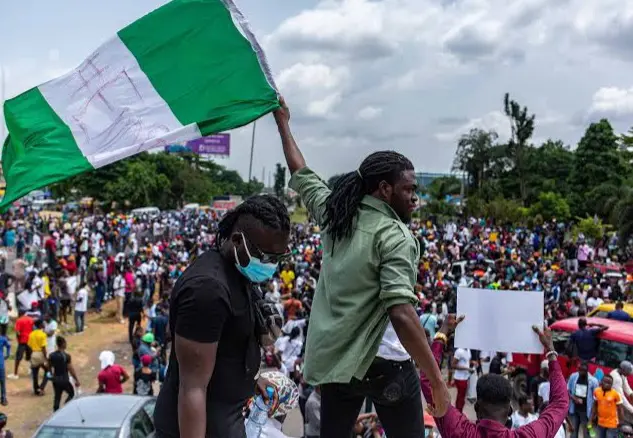An Abuja-based lawyer and human rights activist, Christopher Adie Esq., has asserted that Justice Sylvanus Chinedu Oriji of the High Court of the Federal Capital Territory (FCT) acted correctly in granting an ex parte order restricting #EndBadGovernance protesters to MKO Abiola National Stadium in Abuja.
Justice Oriji, serving as an administrative vacation judge, granted the order on July 31, the eve of the national protests.
The order was issued in response to an ex parte application by the FCT Minister, represented by Dr. Ogwu James Onoja SAN.
The minister sought an interim injunction to restrain the leaders of the protesting groups from gathering or parading along any roadways, streets, offices, and public premises within the FCT from August 1 to 10, or on any other day thereafter, pending the hearing and determination of the motion on notice.
The order has sparked considerable controversy on social media, with some commentators accusing the judge of acting in favor of the FCT Minister by granting the restraining order.
ALSO READ: JUST IN: ASUU gives FG 21-day strike notice
Weighing in on the debate regarding the appropriateness of Justice Oriji’s order, Adie told Tribune Online on Monday that the respected judge did nothing wrong in granting the order, as he merely acceded to the request of the protest organizers.
According to Adie, the concept of confining the protest to a specific location within the FCT was originally proposed by the protesters themselves in a letter addressed to the FCT Minister, in which they requested the use of Eagle Square in Abuja.
In Adie’s words, “Recall that on July 26, 2024, a letter attributed to the Take it Back Movement, a group of Nigerians who described themselves as ‘one of the groups organizing the #EndBadGovernanceProtest,’ circulated on social media.
The authorship of that letter is yet to be denied. This document also formed part of the materials relied upon by the Hon. Minister of the FCT in his application to the court.
“In that letter, the organizers of the protest expressly demanded the use of a specific location (Eagle Square) for the ‘duration of the protest.’ They didn’t stop there; they also requested the removal of the ‘outer wire-mesh barrier facing Aso Rock Villa,’ as they mentioned that protesters might decide to visit the Presidential Villa during the protest.”
Adie emphasized that it was clear the idea of occupying a specific location during the protest originated from the protesters.
He said, “The court did not grant any of the reliefs sought by the Minister of the FCT.
In my opinion, what the court granted was essentially the primary relief sought by the protesters in their application to the Minister, with minor modifications, as the court is empowered to do under Section 6 (6) of the Constitution of the Federal Republic of Nigeria 1999 (as amended).”
He further noted, “The language of the court’s ruling indicates that the learned judge took great care to avert a national crisis.
The protesters had demanded the removal of the ‘outer wire-mesh barrier barricading ingress to Aso Villa,’ as they intended to pay a ‘courtesy visit’ to the Presidential Villa from Eagle Square.
This posed a significant security concern. I can confirm that without the court’s intervention, any attempt to satisfy the protesters’ demands could have resulted in a catastrophe.”
Adie praised Justice Oriji for fulfilling his constitutional duties, stating, “With all honesty, I believe this is one instance where Hon. Justice Sylvanus Chinedu Oriji deserves commendation for his judicious and fair handling of the situation.
The court, in its ruling, recognized the right to peaceful protest. What could be more judicious and fair under the circumstances?”
Criticizing what he described as subversive comments made by Professor Chidi Anselm Odinkalu on August 11, Adie remarked, “what I saw was a man on a personal vendetta. The outrageous allegations are unsupported by verifiable facts available in the public domain.”
He characterized Odinkalu’s remarks as “violence-mongering” and an attempt to pit the judiciary against public opinion.
Adie concluded by advising that “sensitive issues such as peace, national security, public order, and the safety of lives should not be used as a platform for any individual to pursue personal agendas, using the judiciary as a tool.”
NIGERIAN TRIBUNE
